Sweating in work boots is a common problem that many people face. Thankfully, there are several methods on how to stop feet sweating in work boots. These methods include:
- Using a spray deodorant or antiperspirant spray on your feet.
- Wearing socks while wearing closed-toe shoes.
- Applying a foot powder or anti-bacterial powder will reduce sweating and bacterial infection.
- Medicated insoles also work wonderfully to keep sweaty feet at bay.
- Wearing work boots best for sweaty feet.
Let’s know in detail about the methods to keep your feet dry all day long.
Contents
Sweaty feet – why do feet sweat in working boots?
You might have noticed that a lot of people avoid wearing boots because of sweating. Sweating can be an issue for people who need to spend long hours on their work boots. Whenever they remove the shoes, the feet feel wet and smelly.
If you don’t know how to solve the issue, there are many considerations on how to stop your feet from sweating in shoes. While sweaty boots may not sound that harmful, it is the ideal breeding ground for several types of bacteria and fungus, resulting in infections.
However, sweaty feet can indicate other health complications that people tend to overlook. But why do our feet sweat?
Your work environment can heavily influence the condition of sweating. If you work in hot, humid conditions, it is most likely that your feet will sweat. Moreover, general conditions such as hyperhidrosis, which cause the sweat glands to keep producing sweat. Even if you have a remaining foot condition such as the athlete’s foot, it may lead to excessively sweaty feet. Sometimes, various cardiovascular diseases can make your feet sweaty.
For these health conditions, visiting a professional is mandatory. However, if you don’t have these conditions but still suffer from sweaty feet, you may try the following advice.
Causes Of Excessive Sweat Inside Work Boots
Several factors can cause excessive foot sweating inside work boots. Some of them are:
- Poor ventilation: If your work boots do not have proper ventilation, your feet get overheated and sweaty.
- Weather conditions: High temperature and humidity can cause excessive sweating in the feet.
- Wrong fabric socks: Synthetic socks do not allow your skin to breathe, and it increases heat and moisture, leading to more sweat.
- Medical conditions: Some medical conditions like hyperthyroidism, diabetes, or anxiety disorder can cause excessive sweating.
Symptoms And Effects Of Sweat-Related Problems On Feet
Ignoring feet sweating issues inside work boots can lead to severe symptoms and effects such as:
- Bad odor: The most obvious symptom of excessive sweating is bad odor.
- Blisters: Due to constant rubbing of wet skin, you may develop painful blisters, leading to discomfort and pain.
- Fungal infections: Fungal infections like athlete’s foot are common when there is prolonged feet sweat.
- Calluses: When the skin on your feet is wet and constantly exposed to friction, calluses may develop. It thickens the skin, leading to more pain.
The Importance Of Addressing Foot-Sweat Issues In Work Boots
Foot-sweat issues should not be taken lightly as it affects your overall foot health. By addressing these issues, you can:
- Prevent fungal infections: By keeping your feet dry, you can avoid fungal infections like athlete’s foot.
- Avoid bad odor: Addressing sweat issues inside work boots keeps your feet dry and free from bad odor.
- Reduce blisters: Dry skin is less prone to blisters, leading to less pain and discomfort.
Taking care of your feet while working is essential to have a comfortable and safe working experience. By understanding the causes, symptoms, and effects of sweat-related problems in work boots, you can take the necessary steps to prevent them. Don’t ignore these issues; treat them immediately to maintain healthy feet.
Tips on how to stop feet sweating in work boots
- Maintaining foot hygiene
- Wearing all-weather boots
- Using medicated insoles
- Using antiperspirant sprays
- Wearing a good pair of socks
- Using feet powders
- Improving general health
- Keeping the boots dry
Good hygiene and usage of certain products can diminish sweating effectively.
How to get rid of sweaty feet:
- Foot hygiene – keeping your feet clean is a must. Your feet remain under a lot of pressure and heat during work hours. Cleaning them with a suitable product can help reduce sweating. Washing your feet once each day will certainly help. Anti-bacterial soaps or liquids are great for keeping your feet clean.
- All-weather boots – If you constantly need to work in hot and humid weather, then you may choose something else while shopping for a new pair. There are some types of boots that work well in all types of weather. These are anti-sweat boots, so you can wear them in any weather and forget about sweating. Several brands make breathable work boots for sweaty feet using materials like canvas and others, letting the air pass through your boots and dry them naturally.
- Use medicated insoles – You can consider some specialized treatments if you’re looking for ways on how to keep feet dry at work. Medicated insoles are there to help you. Put these soles in your shoes and let them absorb all the sweat and wet feeling from your feet in no time. Moreover, some even come with fragrances, which won’t let the smell come out.
- Antiperspirant sprays – Most of us have used antiperspirant sprays to keep underarms sweat-free, then why not use them for feet? Antiperspirant sprays designed for feet work the same way, thus giving you sweat-free feet at the end of the day. You can use the foot spray on your feet and inside the boots before wearing them. Your regular deodorant or antiperspirant spray will also work if you are on a budget.
- A good pair of socks – Choosing the right pair of socks can make a huge difference if you face sweaty feet issues. Socks act as a layer that separates your feet from the inside of the boot. If you look for the best socks to keep feet dry in work boots, you’ll find plenty with good absorbency to keep your feet dry and eliminate the smell. Some socks come with anti-bacterial properties to prevent germ build-up on your feet. Moreover, make sure to change socks every other day.
- Feet powders – Feet powders also show the same properties that antiperspirants do. Many people use the powder to observe a longer-lasting effect than sprays. To make the best out of these powders, choose one that has anti-bacterial ingredients. Put some powder on your feet after cleaning and before wearing socks. You may sprinkle some inside your shoes, too for a better effect. They are a little less expensive than foot sprays, which is also a reason people prefer them over sprays. However, too much powder can make your feet powdery.
- Improve general health – In many cases, people observe sweaty feet due to some health complications. Several cardiovascular diseases and weight disorders can contribute to excessive sweating. Losing weight can help you reduce sweating by taking off the excess pressure on your feet. Improving your diet is a good method to keep your body relaxed, hence less sweat. Drinking warm water on hotter days will improve hydration and contribute to less sweating.
- Keep the boots dry – During your work hours, both of your feet experience extreme stress and heat, and as a result, end up sweating. So, as soon as you’re done wearing the boots, take them off. After that, keep them under a bright light, or a boot dryer to let them dry and evaporate the sweat. Doing so will not only keep your feet protected against sweating and fungal infections but also make the boots last longer. If it’s daytime, then take the insole out and keep them under sunlight to dry them quickly. Try not to keep them in direct sunlight for long hours, as that may damage the leather. Also, you should take the boots off whenever you have the chance to let your boots and feet dry.
Choosing The Right Work Boots To Prevent Sweat
Sweaty feet in work boots are not only uncomfortable but can also lead to bacterial growth, fungal infections, and foot odor. To prevent this, selecting the right work boots is of utmost importance. Here are some tips on how to select work boots that are breathable and moisture-wicking to keep your feet dry and comfortable throughout your workday.
How To Select Work Boots That Are Breathable And Moisture-Wicking
- Look for work boots that are made of breathable materials such as mesh or leather that allow air to circulate and evaporate sweat away from your feet.
- Choose work boots that have moisture-wicking lining or insoles made from materials like foam, canvas, or cotton, which absorb sweat and keep your feet dry.
- Consider work boots that have vented panels, drainage holes, or perforations, which allow air to flow through and keep your feet cool and dry.
- Pick work boots that are lightweight and not too tight-fitting, as tight shoes can constrict the blood flow and cause your feet to sweat.
The Impact Of Materials, Design, And Construction Of Work Boots On Sweat Levels
The materials, design, and construction of work boots play a crucial role in determining the sweat levels. Here are some key points to consider:
- Materials: The materials of work boots that are considered breathable and moisture-wicking are leather, mesh, canvas, and synthetic fabrics like nylon or polyester.
- Design: The design of work boots that allows for optimal airflow and ventilation includes vented panels, perforations, or mesh windows around the toe or sides of the boots.
- Construction: The construction of work boots that affects breathability and moisture-wicking includes the use of moisture-wicking insoles, lining, and foam padding, as well as seamless or low-sew construction that reduces the number of seams that can trap moisture.
Tips On Finding Work Boots That Offer Optimal Airflow And Ventilation
Here are some tips that will help you find the work boots that offer optimal airflow and ventilation:
- Look for work boots that have mesh or perforations on the sides or upper part of the boots, which allow air to enter and exit the shoes and keep your feet cool and dry.
- Choose work boots that have removable insoles, which can be washed or replaced to keep the boots smelling fresh and clean.
- Pick work boots that have moisture-wicking properties, such as lining or insole material that absorbs sweat and keeps the feet dry.
- Consider a pair of work boots that fits well and is not too tight, allowing enough space for air to circulate around your feet.
Selecting the right work boots to prevent sweating in work boots can be a hassle, but if you follow these tips on selecting breathable and moisture-wicking work boots, you can keep your feet cool and dry, and improve your overall comfort and productivity at work.
Maintaining Good Foot Hygiene To Prevent Sweat
The Right Practices For Keeping Feet Clean And Dry
Maintaining good foot hygiene is critical for preventing feet from sweating. It is also necessary for ensuring that your feet remain healthy. Here are some of the right things to do to keep your feet clean and dry:
- Wash your feet frequently with soap and water. This will help prevent bacteria and fungi from growing on your feet.
- Dry your feet thoroughly after washing them. You can use a towel or a hairdryer on a cool setting.
- Apply foot powder to help absorb any excess moisture and to keep your feet dry.
- Wear moisture-wicking socks that will help to keep your feet dry.
- Make sure you change your socks at least once a day. This will help prevent bacteria buildup.
The Importance Of Airing Out Boots Regularly
Airing out your work boots regularly is crucial for preventing feet from sweating. When you sweat, moisture gets trapped in your boots, which can lead to bacteria build-up and unpleasant odors. Here are some ways to air out your work boots:
- Take out the insoles and leave them out for a few hours to dry.
- Store your boots in a well-ventilated area that is dry.
- Use a shoe dryer to help dry out your boots. Shoe dryers are effective at removing any moisture that may be trapped in your boots.
Recommended Products For Hygiene Maintenance
Using the right products for hygiene maintenance is an essential part of preventing feet from sweating. Here are some recommended products for hygiene maintenance:
- Foot powder: A good foot powder can help absorb moisture and keep your feet dry. Look for products that contain antifungal and antibacterial ingredients.
- Antibacterial soap: An antibacterial soap can help prevent bacteria and fungus from growing on your feet.
- Disinfectant spray: A disinfectant spray can help kill bacteria and fungus that may be living in your boots.
To summarize, maintaining good foot hygiene is critical for preventing feet from sweating. Washing your feet frequently, wearing moisture-wicking socks, and using foot powder are just a few ways to keep your feet clean and dry. Additionally, airing out your boots regularly and using recommended products for hygiene maintenance can go a long way in preventing feet from sweating in work boots.
Natural Remedies To Combat Work Boot Foot-Sweat
Sweaty feet are an uncomfortable and often embarrassing problem, especially when they occur while wearing work boots. Natural remedies can combat foot sweat effectively without harsh chemicals. Here’s an overview of natural solutions to help you stay dry and comfortable on the job.
Overview Of Natural Solutions
Several natural remedies can reduce or eliminate foot sweat. They work by addressing the underlying causes of foot sweat, such as excessive heat, poor circulation, or stress. Here are some of the most effective solutions:
- Black tea foot soak: Soaking your feet in black tea can reduce foot sweat by closing the pores and regulating the sweat glands’ activity.
- Apple cider vinegar: Applying apple cider vinegar to your feet can balance ph levels and kill odor-causing bacteria.
- Foot powder: Using talcum-free foot powder can absorb moisture and keep your feet dry and comfortable.
- Epsom salt foot soak: Soaking your feet in epsom salt can help relieve stress and improve circulation, reducing the likelihood of foot sweat.
Advantages Of Natural Remedies Over Conventional Antiperspirants
Using natural remedies to reduce foot sweat has several advantages over conventional antiperspirants. For example:
- No harmful chemicals: Natural remedies are free of harsh chemicals that can harm your skin or disrupt your body’s natural processes.
- No residue: Natural remedies do not leave a white residue, making them less visible and less likely to stain clothing or shoes.
- Long-lasting: Natural remedies can be effective for several hours, reducing the need for frequent reapplication.
Diy Remedies For Foot Sweat
If you’re looking for a diy remedy for foot sweat, here are a few easy and effective options:
- Lemon juice: Applying lemon juice to your feet can reduce sweat and kill odor-causing bacteria.
- Baking soda: Mixing water and baking soda into a paste and applying it to your feet can help absorb moisture and reduce sweat.
- Cornstarch: Dusting cornstarch on your feet can absorb moisture and reduce foot odor.
Overall, natural remedies can effectively combat foot sweat without harsh chemicals or negative side effects. Give these remedies a try for a more comfortable and confident workday.
Advanced Solutions To Tackle Stubborn Work Boot Foot-Sweat
Do you find yourself struggling with sweaty feet inside your work boots? Not only is it uncomfortable, but it can also lead to odorous, bacteria-ridden work boots. Luckily, there are advanced solutions to help manage this pesky problem. Here’s what you need to know:
Advanced Products That Help Manage Excessive Sweating Inside Boots
- Antiperspirant sprays designed for feet can help reduce sweating. Look for products with aluminum chloride hexahydrate, which is known to effectively prevent sweat.
- Moisture-wicking insoles can help keep your feet dry by absorbing sweat. Choose insoles with moisture-wicking properties, such as those made from bamboo or charcoal.
- Foot powders can also absorb sweat and help reduce odor. Look for powders containing ingredients such as talc, cornstarch, or baking soda.
Factors To Consider Before Using Advanced Solutions
Before trying any advanced solutions, consider the following factors:
- Always read the instructions on any product you use and follow them carefully.
- If you have sensitive skin, test the product on a small area before using it on your entire foot.
- Some products may be too harsh for certain types of boots or materials. Check to make sure the product is safe to use with your specific boots.
- If you have any medical conditions or are taking medications, consult with a healthcare provider before trying any new products.
Professional Medical Treatments For Severe Cases Of Work Boot Foot-Sweat
For severe cases of work boot foot-sweat, it may be best to consult with a healthcare provider. They may suggest one of the following medical treatments:
- Prescription-strength antiperspirant medications, which can be applied to the feet to help reduce sweating.
- Iontophoresis, which involves using a low electrical current to reduce sweat production.
- Botox injections, which can be effective for reducing sweat production in the feet.
There are advanced solutions available to help manage work boot foot-sweat. From antiperspirant sprays and moisture-wicking insoles to professional medical treatments, there are options to fit every need. Give these solutions a try and keep your feet dry and comfortable all day long.
Frequently Asked Questions For How To Stop Feet Sweating In Work Boots
How Can I Prevent Sweating In Work Boots?
Wear moisture-wicking socks and change them daily. Use talcum powder to keep feet dry. Apply antiperspirant to your feet.
What Are Some Factors Causing Feet Sweat In Work Boots?
Tightly-fitted boots, hot temperatures, and work environments that require physical activity are some of the common causes of feet sweating.
How Often Should I Change My Socks To Avoid Feet Sweat?
It’s recommended to change socks daily or even more frequently if your feet sweat a lot. The moisture-wicking socks can help keep your feet dry.
Can I Put My Work Boots In The Washing Machine To Solve The Sweat Problem?
No, washing may damage the boots causing them to reduce in quality and fall apart. Use a damp cloth to clean your boots.
How Can I Keep My Feet Odorless While Wearing Work Boots?
Wear clean socks every day, use foot powder, and let your boots air out overnight. Airing out helps to keep feet dry and minimize bacteria growth.
Conclusion
As you have seen, there are various ways to prevent feet sweating while working in boots. The first step is to choose breathable materials that allow air circulation in your footwear. Wearing moisture-wicking socks is also essential to minimize the accumulation of sweat around your feet.
Additionally, applying antiperspirant products, using foot powder, and taking regular breaks to air out your feet can also help. It is crucial to maintain proper hygiene consistently to avoid bacterial and fungal infections that thrive in warm damp environments. With these tips in mind, you can now work comfortably in your boots without worrying about sweaty feet.
Incorporating these changes into your daily routine can make a significant difference in your comfort level while working. Taking care of your feet not only addresses the discomfort but also prevents potential health hazards.
Best socks to keep feet dry in work boots
Best Work Boots For Sweaty Feet
Best Antiperspirant Spray for Sweaty Feet
Did you know that you can get rid of shoe odor using tea bags.
Wanna learn how?
Click below.
Read More

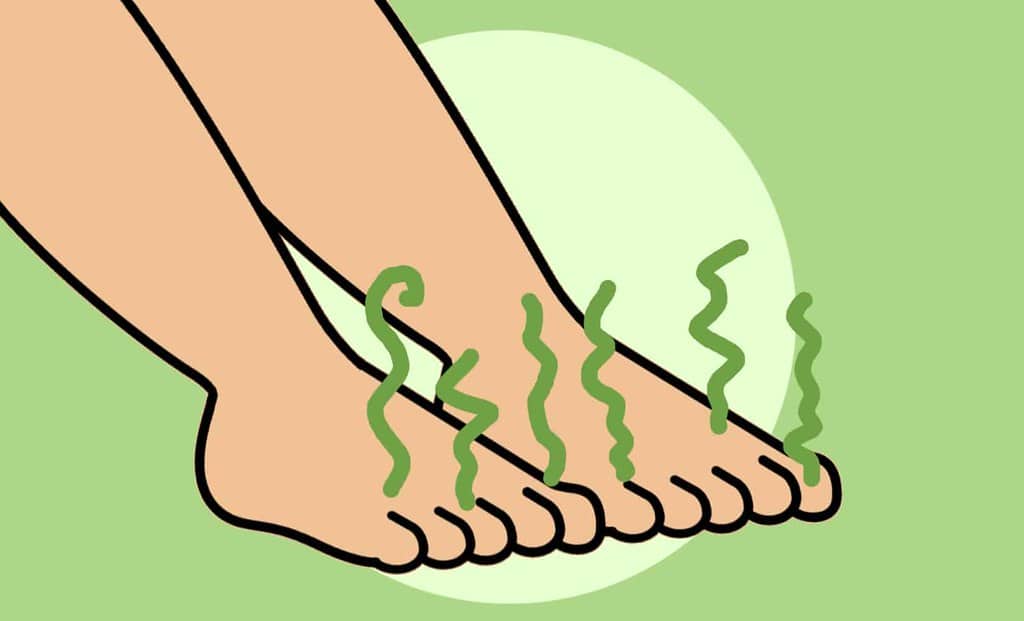

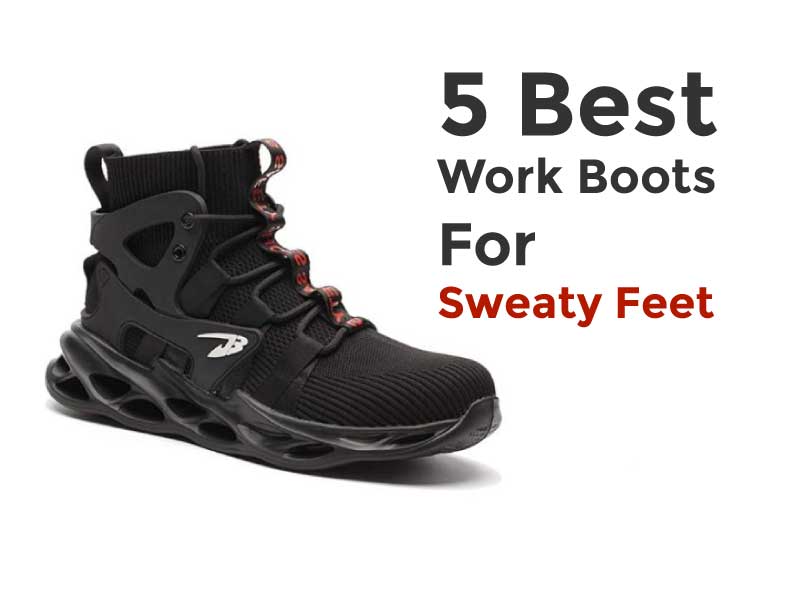

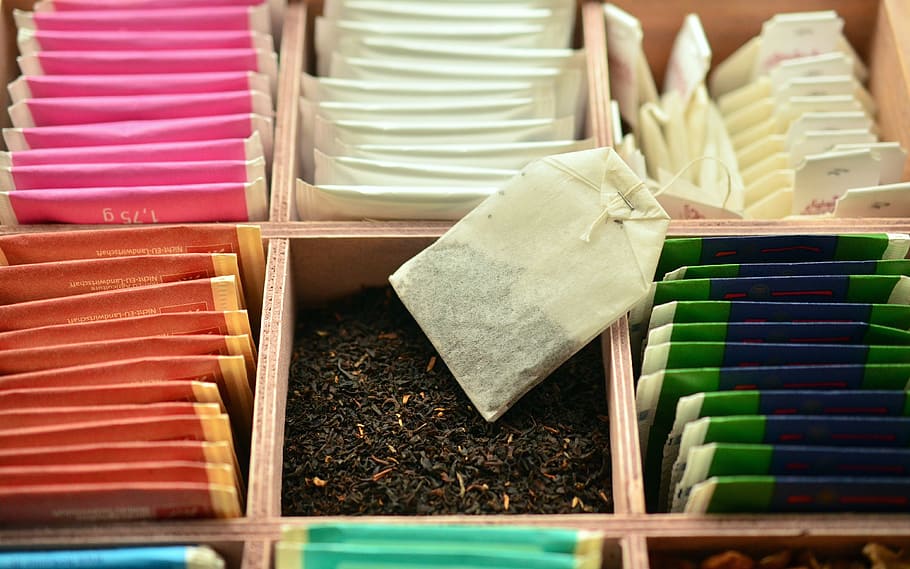
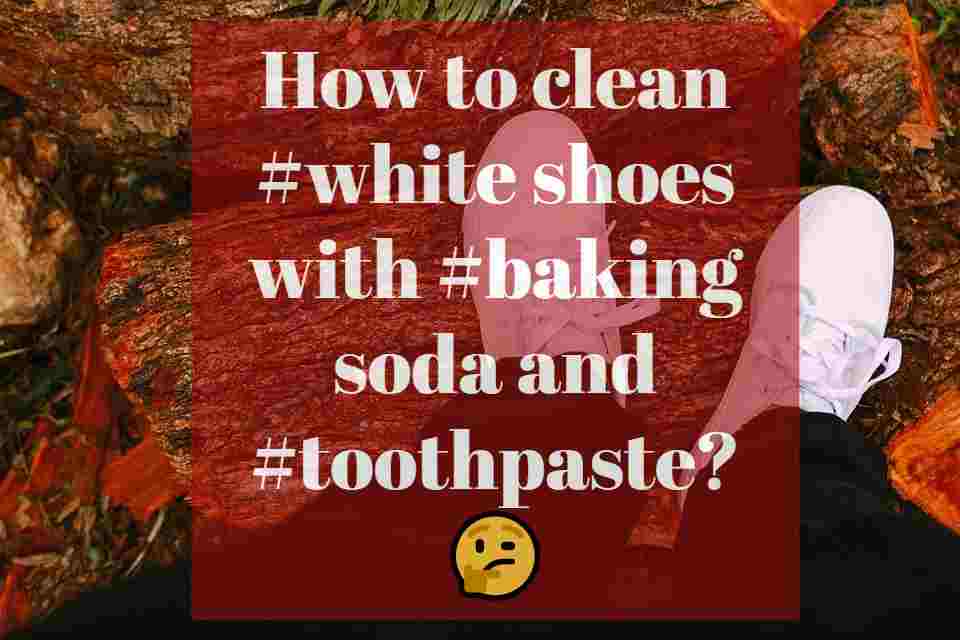
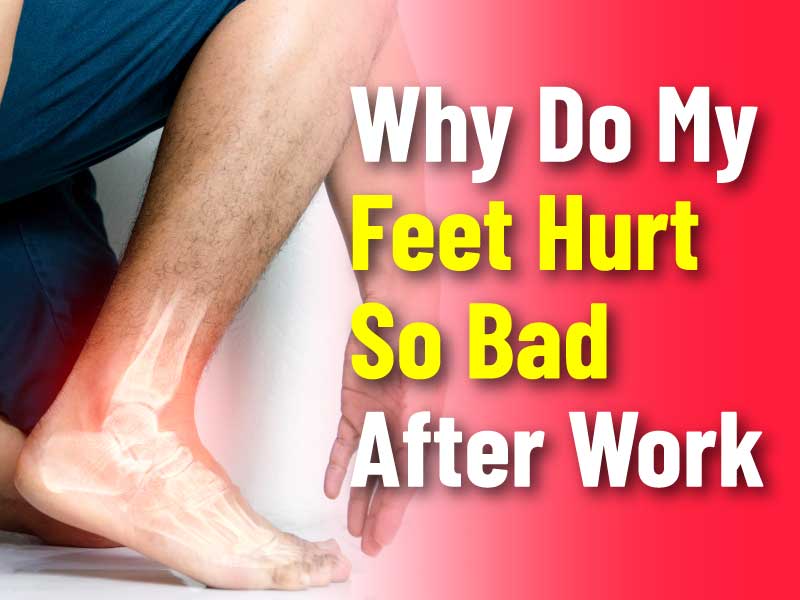
9 thoughts on “How To Stop Feet Sweating In Work Boots – 8 Tips”
Comments are closed.